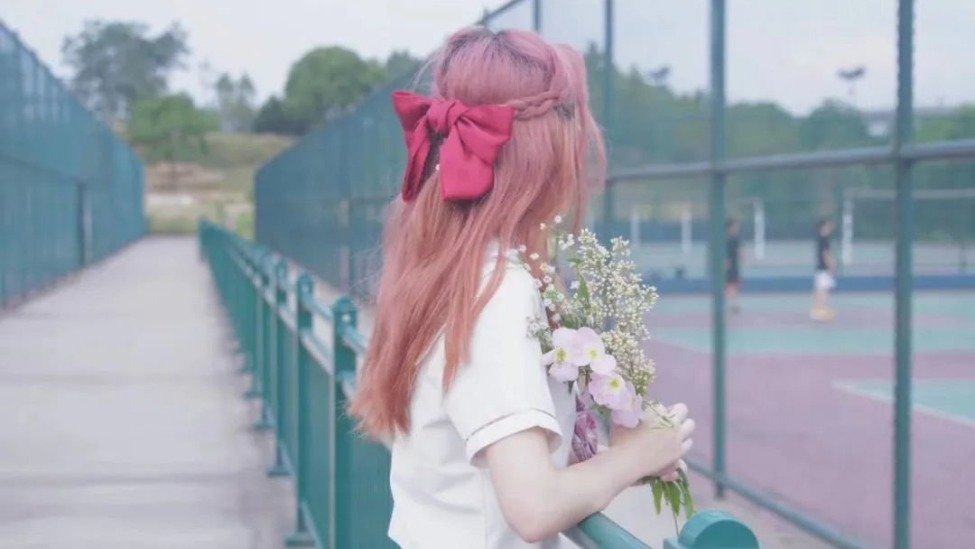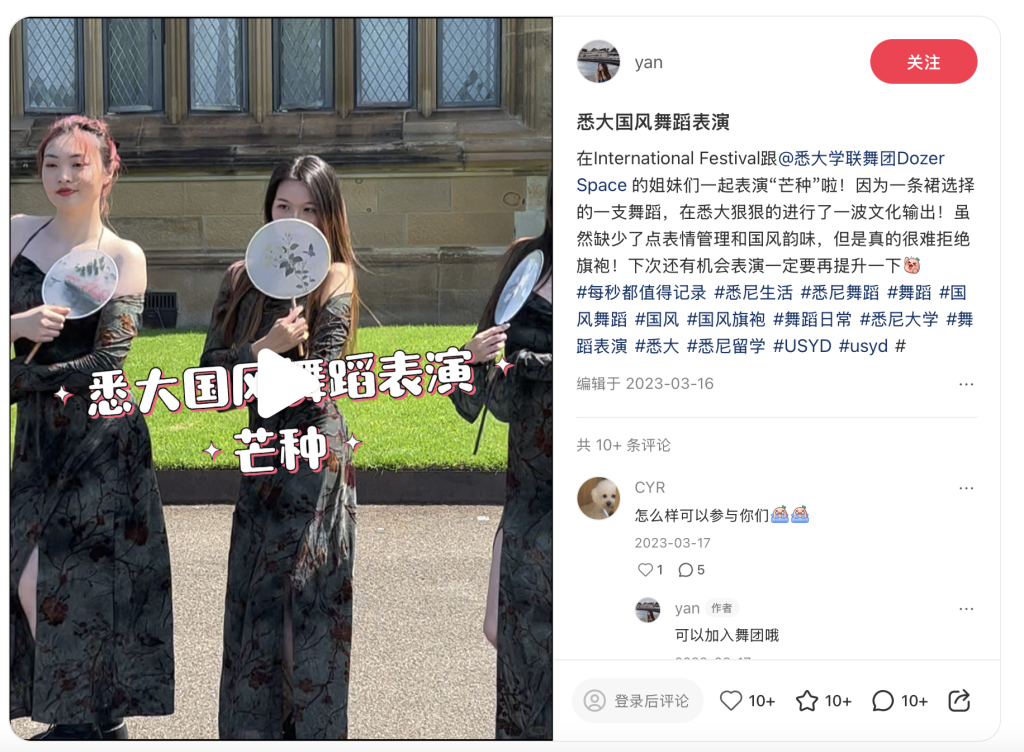
She just changed her hair colour but attracted thousands of abuses. Linghua Zheng, the “pink-haired girl” (Ng, 2023), still lives in the noise of our understanding of beauty and discipline.
In the era of advanced social media today, freedom of speech protects our right to talk. We are free to express our opinions and views.
However, hate speech on the internet acts like a domino effect that gradually pushes people into an endless abyss. Once triggered, it can set off a chain reaction of negative consequences.
In January 2023, the entire Internet was dominated by this “pink-haired girl”. She was not a popular star, nor was she worth millions. She had not committed any illegal acts nor had any moral corruption. She was just an ordinary 23-year-old college student. Why did her death attract social attention?
From the Choi Sulli incident (Gurley, 2019) in South Korea in 2019 to the “Room N” incident (YCNews, 2021) in South Korea in 2021 to the “pink-haired girl” incident in China. In recent years, women have continued to be the target of attacks on the Internet. Indiscriminate discussions of women’s appearance, sexual orientation, occupation, social activities, and even humiliation and false accusations.
The departure of the victims in the incident has made women in modern society stronger and has also made the whole society begin to pay attention to the problem of women facing online violence.
What is hate speech?
Many people may not even realize what kind of speech will turn into hate speech. When people start to notice comments that “expresses, encourages, or incites hatred“toward a group based on specific traits or characteristics (Parekh, 2012)—for example, a slightly chubby girl sharing her workout photos on social media might receive comments like, “How dare someone with that body post pictures?”
These remarks target female’s body shapes, appearances, behaviors, and even their activities. While a single comment may not seem violent or inciting on its own. (USYD, 2025) The collective force of repeated and widespread expression will escalate into a form of public aggression, thus constituting hate speech. The harm that females suffer online is not only emotional—it often develops into deeper psychological wounds.

When hate speech reaches online violence, 73% of women have experienced online abuse. (World Bank, 2023) 95% of online violence is directed at women, including cyberattacks, abuse, harassment, and defamation. (World Bank, 2023)
Women are more likely to be victims than men. For example, women bloggers, women journalists, and content creators. Especially women with disabilities and young children who are more vulnerable and powerless. Globally, less than 12% of women are protected by law. (World Bank, 2023)
What does hate speech do to women?
When an ordinary person is suddenly subjected to overwhelming abuse, she will suffer from tension, anxiety, fear, insomnia, or even post-traumatic stress disorder, which will affect her normal work and life. (Tengcent News, 2023) For women who are more probability to become victims, the negative effects they suffer will often last for a long time. In the end, they may not be able to face the pressure of public opinion and end their lives.
I want to share a story from my personal experience. In 2022, when online social media was officially popular, I came to Sydney for the first time and wanted to open my account through Red Book and Instagram. At first, I slowly found my own style and content production direction. But I felt uneasy and anxious when faced with the sudden surge in traffic.
Fortunately, I quickly stabilized my account content and style in Sydney through my talents. And I created an online image for myself as an international student practicing dance in Sydney. Although the number of clicks and fans is not large, social media is a growing trend. I am very confident and look forward to the day when the traffic will explode.
A year later, I danced the Chinese dance “Mangzhong” with the members of the dance troupe at the international festival held by the University of Sydney. On that day, we also filmed the dance under the scorching sun with the oldest Quadrangle building in the University of Sydney as the background. The video content posted on my social media was my dance penhold. That video received more than 10,000 clicks and more than 80 comments. (Yan, 2023)

The weird thing is that this video has a lot of views but only 170 likes. Compared with the anomalies of the data, I noticed that these comments were more evaluative and denigrating. In addition to the comments section, the video contains a barrage of insults and comparisons of women’s physical appearance.
Some people commented, “The girl with red hair in the back is so ugly, while the one in the front is pretty.” Others said, “It’s shameful that she dances so ugly.” Those similar comments affect me and my friend. I post the video, but I don’t want everybody drop into the hate speech, including my friends.
That day, I was at the international cultural exchange conference at the University of Sydney. We brought Chinese dance, music, and songs to Sydney to do a simple cultural dance promotion. I hope that international friends can appreciate the breadth and depth of Chinese culture. But online, those Chinese accounts the cold and ruthless; they compared the looks and appearances of different members in the video across the screen and said some offensive words wantonly. Defaming the content, videos, and even the practices I shared aroused my inner anger.
When the traffic came, the direction was wrong at the beginning, so why did it continue to ferment? I didn’t want to be scolded by netizens, because it was not only me, but also my friends would be hurt. So, when I found that the traffic increase trend was wrong, I immediately reported malicious comments and accounts with offensive remarks. Their words made me feel sick and stressed.
For a long time, I was in a state of self-doubt. Repressing oneself in fear of receiving other people’s doubts and comments will affect those around you. Members of the dance company then discussed the topic, and they also experienced emotional issues such as appearance anxiety after reading the comments. After encountering this emotional problem, my mental state was also received a certain impacted, and I gradually recovered after repressing and stopped using social media for a while.
In general, many young people are not alert and purposeful about the we-media industry and social networks. Many people started the age of social media just to share their lives. Although my experience with friends has slowly improved along with the event, it is no longer overly skeptical and depressed to conform to the crowd.
But can all ordinary people repair themselves?
The answer is no, remember the ” pink-haired girl “. Linghua Zheng, a girl with long pink hair, suffered online violence and ended her life at the age of 23 due to depression on January 23, 2023.
The origin of her story happened at 4:30 pm on July 13, 2022. Linghua received an admission letter for graduate school. To share the memorable moment with her loved ones, she took relevant videos and pictures. That evening, she edited the photos of her brief reunion with her grandfather and edited the video vlog of the two of them and uploaded them to different social networking sites.

After 9:30 pm that day, she found on her way home that her Red Book post had received more than 60,000 likes and comments.
The next day, Linghua learned from a private message from an online friend that two Dou Yin users had stolen her pictures and made a short video for recruiting students for a training institution. In the video, she was described as an inspiring student who got a college admission letter after failing the college entrance examination. She immediately complained to the platform about the content and called the police on the Red Book official website to report the infringement.
Unfortunately, Dou Yin replied, “complaint failed” and the user who stole the pictures blacklisted her. At the same time, her photos were stolen by multiple marketing accounts and widely circulated on the Internet.
When a verified blogger account with more than 300,000 followers also used three pictures cut from her video content to post the dynamic of “My Master’s Admission Notice”. Her pictures included Linghua talking to her grandfather in spirit, Linghua holding her grandfather’s hand, and the inside page of the notice, in which Linghua’s name was on the blogger’s post without mosaics.
This post and tweet that plagiarized pictures and content reached 3 million views in two days. The comment section contained many offensive remarks such as “using your own grandfather to speculation”, ” Grandpa died late”, and “live off own grandfather”.
Hate speech gradually expanded its supply group at this time and began to criticize and abuse young people for dyeing their hair and their identities as normal school students and art students. Since then, Linghua has not left her house, and in an interview, she also said that she had difficulty falling asleep. At the same time, she actively sought legal assistance and psychological counseling.
On July 23, Linghua was diagnosed with depression in the hospital. On the same day, she dyed her hair back from pink to black. A few days later, she posted a lawyer’s letter on her Weibo account, requesting that the network platform immediately remove and delete the relevant videos and pictures.
After reappearing in the public eye, she introduced interviews and reports from three official media outlets and received support from many newspapers for her active rights protection. After receiving support for the first time, she responded to the offensive netizens and asked them to delete the video and apologize. But what she got was a second attack.
After a month, subsequent reports said that Linghua tried to restore her life after being cyberbullied, but she had suffered serious psychological trauma. The malicious barrage attacker also apologized to Linghua. Since it is difficult to obtain evidence of cyberbullying, this incident also received social attention.
But unfortunately, six months later, I still received a Weibo post from Linghua’s friend stating that “the pink-haired girl who was cyberbullied ended her life because of depression.” When this information appeared in the public eye, the social discussion on topics such as the cause of Linghua’s death, cyberbullying rights protection, depression, and cyberbullying reached an unprecedented climax.
In one year, she went from sharing her joy to facing depression due to online bullying. The impact of online bullying on social media is not just about affecting emotions. Linghua has always been strong and brave enough to fight, but the online damage caused by hate speech and fanning the flames is no longer enough for an ordinary girl to persevere to the end. Netizens started with her pink hair and appearance, spread pictures, and spread pornographic rumors. The entire network has gradually become blurred and difficult to distinguish right from wrong.
What to do in the future?
The incident has aroused widespread public concern about cyber violence, calling for the strengthening of the governance of cyber violence and the protection of victims. Experts pointed out that cyber violence not only causes serious harm to individuals but also disrupts the normal order of the Internet and must be severely punished according to the law. (Wang & Zhou, 2024)
In addition to promoting the law, the responsibility of the platform to disclose content transparency should be strengthened. Society needs to give women the opportunity to speak out and build a supportive community to resist cyber violence. Further help female victims to protect their rights during cyber violence. At the same time, as women, they should actively report hate speech and maintain a good network environment for society.
As women, we should bravely speak out to defend our rights and not let ourselves fall into an endless abyss.
Is the post you forwarded and commented on support or silent violence?

Reference
Financial Xiaopengyou. (2023, February 23). 24-year-old girl with pink hair dies after online bullying [Photograph]. Sina News. https://k.sina.com.cn/article_7314394037_1b3f8cbb501901gohi.html
Gurley, G. (2019, October 14). Sulli, K-pop singer, found dead: Choi Jin-ri was 25. Newsweek. https://www.newsweek.com/sulli-k-pop-singer-dead-choi-jin-ri-sm-entertainment-1464962
Merkur. (2021, June 4). What can everyone do against hate speech on the internet? [Photograph]. https://www.merkur.de/politik/hate-speech-hassrede-netz-reaktion-tipps-gegenrede-anzeige-initiative-hilfe-or-zr-90788492.html
Ng, K. (2023, March 28). Zheng Linghua: The 23-year-old girl with dyed hair is gone, and the dilemma of cyberbullying remains unresolved [In Chinese]. BBC News Chinese. https://www.bbc.com/zhongwen/simp/chinese-news-65095783
Parekh, B. (2012). Is there a case for banning hate speech? In M. Herz & P. Molnár (Eds.), The content and context of hate speech: Rethinking regulation and responses (pp. 37–56). Cambridge University Press. https://www.cambridge.org/core/books/abs/content-and-context-of-hate-speech/is-there-a-case-for-banning-hate-speech/F4C4B6AA81DFF40234B75D4ED7399A44
Phoenix News. (2023, February 20). The girl with pink hair has passed away, and no one is held accountable for the cyberbullying [Photograph]. https://news.ifeng.com/c/8NZ74dfvwrl
Tencent News. (2023, April 17). “ From Internet abuse to pornography: Why are women more likely to be attacked?“ https://news.qq.com/rain/a/20230417A00TLK00
University of Sydney. (2025). Week 6: Issues of concern – Hate speech, online harms and moderation [Lecture slides]. ARIN6902: Media Law and Ethics. Canvas. https://canvas.sydney.edu.au/courses/64614/pages/week-6-issues-of-concern-hate-speech-online-harms-and-moderation?module_item_id=2584697
Wang, C., & Zhou, Y. (2024, May 21). Punishing cyberbullying and cultivating correct views on love and marriage: Experts discuss the “Fat Cat” incident [In Chinese]. China Women’s News. https://fegw.sh.gov.cn/ywxx/20240521/5ca333505bbd40b09c51b8787f2d8a43.html
World Bank. (2023, October 26). Protecting women and girls from cyber harassment: A global assessment. World Bank Blogs. https://blogs.worldbank.org/zh/voices/protecting-women-and-girls-cyber-harassment-global-assessment
Yan Huang. (2023, March 16). “University of Sydney national dance performance”, Red Book. https://www.xiaohongshu.com/explore/6411c56e00000000130129b7?app_platform=ios&app_version=8.78.1&share_from_user_hidden=true&xsec_source=app_share&type=video&xsec_token=CB7qw-n8Y3-44jK-o79HdrBWgmqstYoCTh_Pnzyj-r_H0=&author_share=1&xhsshare=WeixinSession&shareRedId=N0c5OUY2PDtLP0ZFO0o2PDg4OkxKST5N&apptime=1744801571&share_id=bc03a8be74874aeebe2e6cd434f205bf
YCNews. (2021, January 21). Two accomplices in South Korea’s “Room N” sexual crimes were sentenced in the first instance. https://ycnews.com/two-accomplices-in-south-koreas-room-n-sexual-crimes-were-sentenced-in-the-first-instance/
YouTube. (2024, February 20). One year after the pink-haired girl’s death due to cyberbullying, a former attacker says: ‘The cause and effect have nothing to do with me’ [Video]. YouTube. https://youtube.com/shorts/zGvFy4ShLhU
Yu, Y., Wu, Y., & Zhao, L. (2023, February 20). Girl with pink hair dies after online bullying; classmates and friends speak out [Photograph]. Sohu. https://www.sohu.com/a/643705921_260616

Be the first to comment